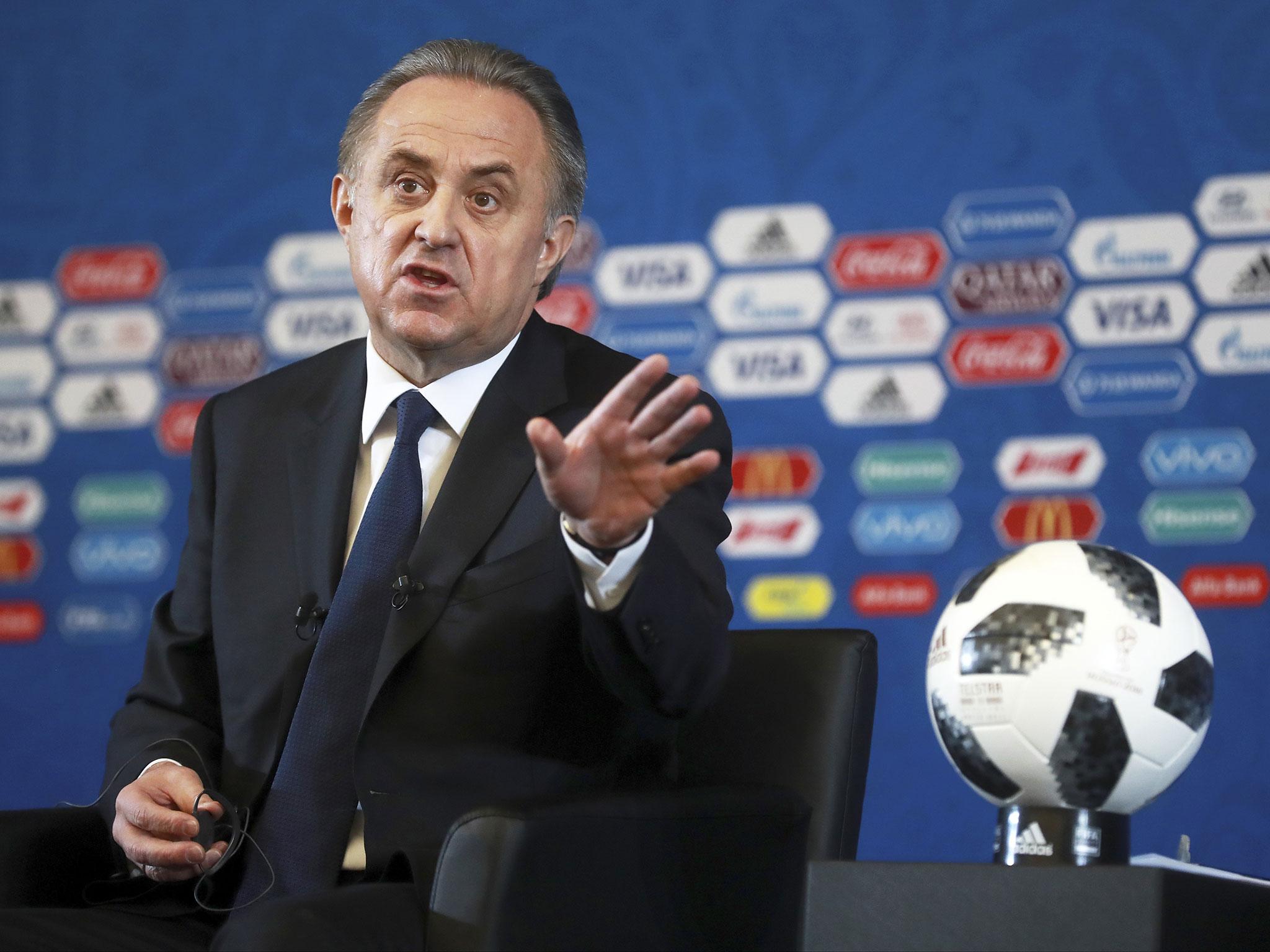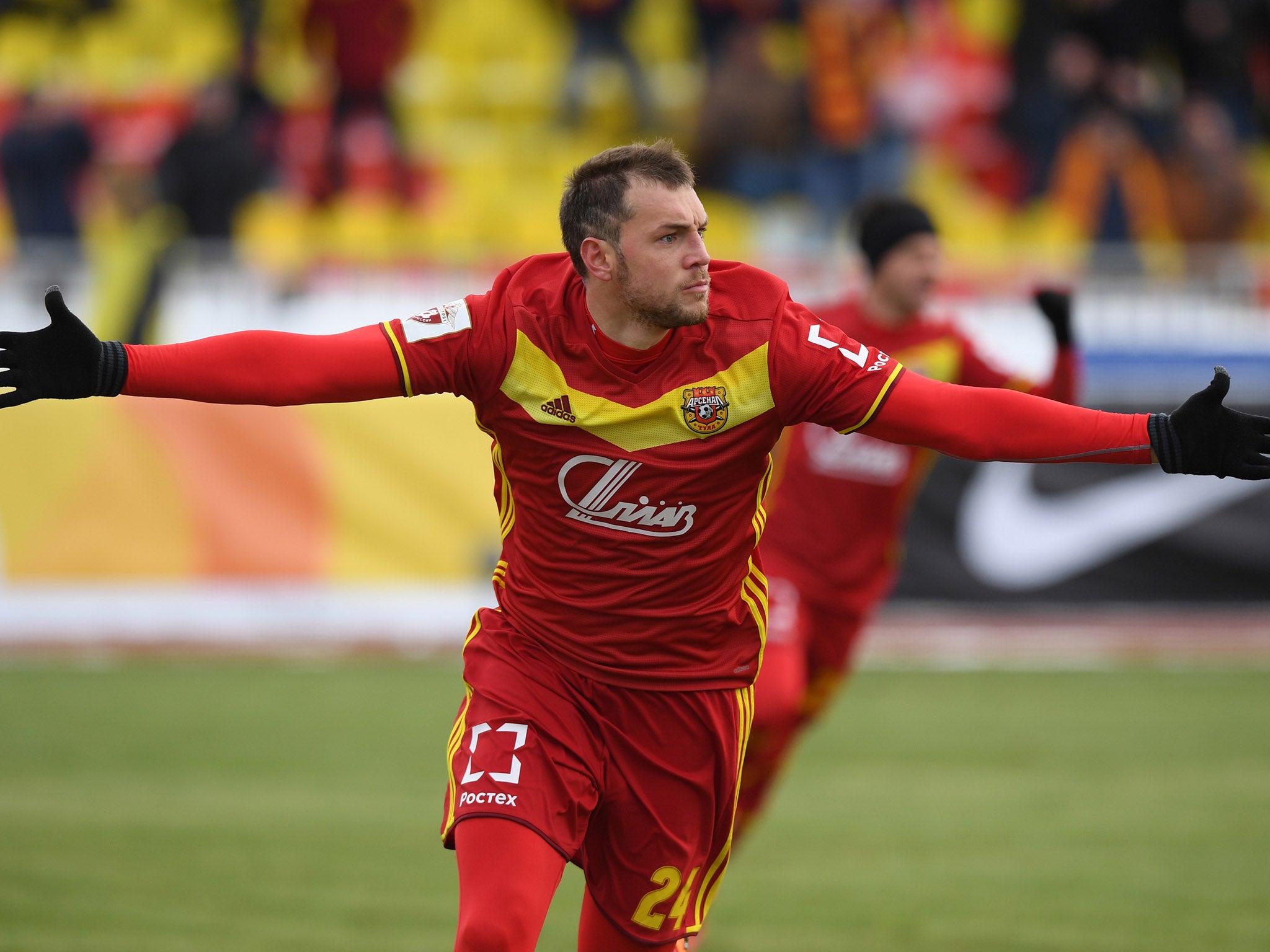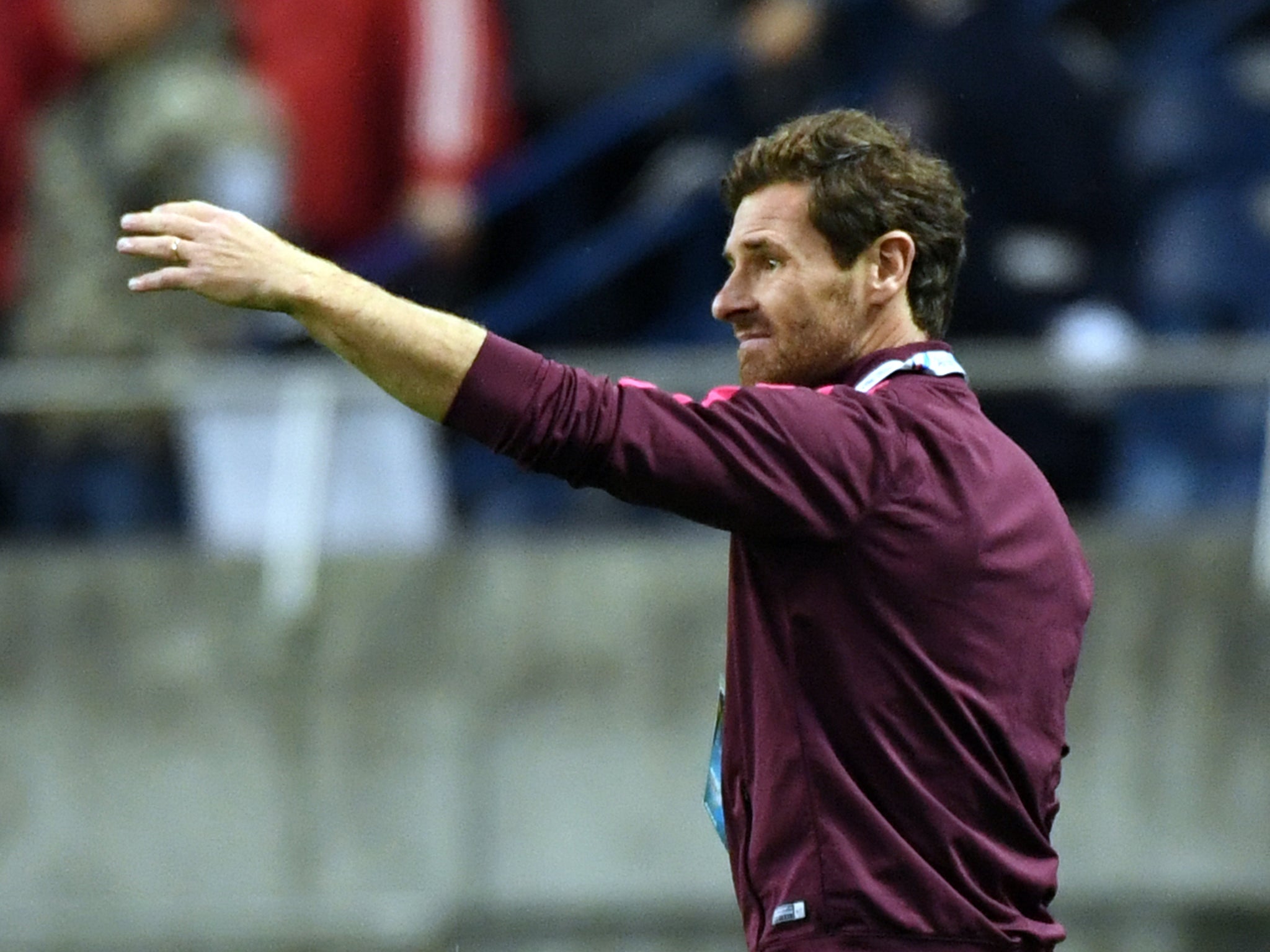World Cup 2018: Russia have spent billions to host this tournament, so why are they still so bad at football?
The league's foreigner rule, which dictates that each side must field at least five Russian players, has hindered the national side's development
Russia has spent eight years and the best part of 700 billion rubles getting everything ready for this World Cup, bending everything their way, building a tournament to show the world what modern Russia can achieve, standing proudly by itself.
But when Stanislav Cherchesov’s team kick off against Saudi Arabia on Thursday, they will likely do the opposite. Even at their own party here this summer, expect Russia to impress no-one, entertain no-one and quite possibly beat no-one. After Saudi Arabia it is only going to get harder, as they take on Egypt and then Uruguay. Do not rule out a group stage exit.
That would sting Russian pride, but then Russian pride, in its form as insularity, is why the team is so poor. Just look back to the story of the Dynamo Moscow team of the mid-2000s.
Alexei Fedorychev was one of the first Russian oligarchs to pour his millions – earned in car parts, steel, shipping, phosphates and the rest – into football following his purchase of boyhood club Dynamo in 2004. He stepped out on what is now a very familiar path for wealthy enthusiastic new football club owners: he called Jorge Mendes and asked him to build him a team.
Soon enough the players started to arrive, many of them from the Porto team that won the Champions League with Jose Mourinho in 2004. Maniche was the biggest name, for €16m, and his younger brother Jorge Ribeiro joined too. Costinha, Derlei and Giourkas Seitardis came from Porto, Danny and Joseph Enakarhire from Sporting CP, Nuno Frechaut from Boavista, Luis Loureiro and Cicero from Braga, and an unknown 20-year-old centre-back called Thiago Silva joined on loan, only to contract tuberculosis, spend six months in hospital and nearly retire.
Sure enough on 27 August 2005, in a match against FC Moscow, Dynamo fielded a team made up entirely of imported players. And this was the moment that Putin’s government decided to say no. No more oligarchs teaming up with super-agents to flood Russian football with cheap foreign talents.
Vitaly Mutko, Putin ally and president of the Russian Football Union, tightened up the rules, limiting teams to seven foreigners, protecting the places of at least four Russians. With that, the market changed. Oligarchs like Fedorychev could no longer fill their teams with imports. Russian players were now protected and saw their value to teams increase, and their salaries too. Over the last 13 years the authorities have continued to tinker with the details, finally settling on a 6+5 system in 2015, but the trends have been the same.

Anton Evmenov has been head scout of CSKA Moscow and Zenit St Petersburg and he knows very well how those rules have changed the Russian game.
“It’s an artificial limit,” Evmenov says. “And it gives an advantage to Russian players. Sometimes you don’t really have to fight for your place, which is not good. It’s a protective rule. There wasn’t enough Russian talent in the league, so these kind of rules, they just elevated the prices for the players and their wages sky-rocketed from what they were paid before.”
So while Russian player development is going nowhere, the salaries those players can command are still buoyant. Artem Dzyuba is now the Russian league’s best-paid Russian player, on €3.6million net per year. Aleksandar Kokorin of Zenit earns €3.3m, Fyodor Smolov €2.9m for Krasnodar.
When the rewards are this generous at home, players do not need to leave. Evmenov is not against the rules – “without the limit, we wouldn’t have Russian players at all and we wouldn’t be able to field a proper national team” – but he says that they diluted the motivation of Russian players to be the best they can be. They have no reason to go abroad and are happy to stay at home, protected by the system.
“Clubs pay so well here that for a top Russian player, Barcelona would need to come after him, because he is getting big money here,” Evmenov says. “They stay in the Russian league, this is the main problem. If they only play in Russia, they don’t get to know new techniques, they don’t see other things, they don’t play with people from other football cultures. They don’t push themselves, to tell you the truth. In Russia, if you have a Russian passport, there is a certain advantage. But a certain handicap, which allows you not to work 100 per cent.”

There was a brief flurry of Russian players signing for English teams after Euro 2008 but they returned home swiftly and now only three of the provisional squad for this summer’s World Cup are based abroad: Denis Cheryshev at Villarreal, Roman Neustadter at Fenerbahce and veteran back-up keeper Vladimir Gabulov at Club Brugge.
That insularity of Russian players has given a stale look to the national team. Talented younger players like Alan Dzagoev and Aleksandr Kokorin – now both 27 – never went abroad and reached the next level as footballers.
Raymond Verheijen was part of the Russian coaching staff at Euro 2008 and Euro 2012 and he regrets how the team now is not as good as it was then, because of that insularity. “Conservatism within football stops development,” he explains. “The best way to develop players is with other good players. Players make each other better. If you want better players, you have to surround them with better players. And if Russian players are surrounded by worse players, it’s a self-fulfilling prophecy.”
What the Russian Premier League needed, then, was better foreign imports to lift the level of the league. And even after the foreigner limit was first introduced, there were still moments when Russian clubs could buy the top players from abroad – most notably when Zenit St Petersburg signed Axel Witsel from Benfica and Hulk from FC Porto for a combined €100m in September 2012.
That felt like the start of a new era of Russian power, but we know now it was a peak that is unlikely to be reached again. Zenit are owned by Gazprom, the state-owned gas giant, and the most profitable company in the world in 2009 and 2011. But when Russia invaded Ukraine in 2014 and was hit with sanctions the ruble collapsed. Combined with a collapse in global oil prices, Gazprom suffered an 86 per cent fall in net income in 2014. Which meant no more Hulks or Axel Witsels.

Russia could no longer throw its weight around in the transfer market and it was quickly supplanted by China as the foreign league with the longest reach. Sure enough, Hulk and Witsel were both sold to Chinese clubs in the season before last. Other Russian clubs felt the squeeze too: Evgeni Giner, the oligarch owner of CSKA Moscow has had to restrict spending in the last five seasons after losing money because of the war. He had been successful importing Brazilian players, like Dani Carvalho and Wagner Love, but that is not an option anymore.
This has made the Russian league an increasingly miserable place, with a dwindling quality of foreign imports alongside cosseted protected Russian players. It could have been a coup when Zenit appointed Andre Villas Boas in 2014 but he hated the foreigner rule and when it was extended in 2015 he was distraught. Villas Boas said it was “the worst possible decision”, that the players would become “lazy” and stop fighting for their places. He even called it “the end of the development of Russian football”, before leaving, predictably enough, for China. That marked the end of the glamorous growth of the Russian Premier League, after a decade of increasing insularity. Where it leaves the plodding Russian national team will be clear enough this week.
Join our commenting forum
Join thought-provoking conversations, follow other Independent readers and see their replies
Comments